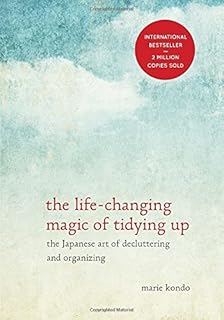hegemony (Also hegemonies) : Related Words Words similar in meaning to hegemony
- leadership«
- hegemony«
- hegemonist«
- hegemon«
- hegemonism«
- cultural hegemony«
- political system«
- cultural imperialism«
- form of government«
- survivance«
- strongest global power«
- posthegemony«
- societal character«
- hegemonize«
- hegemonic governance«
- hegemonic sphere«
- hegemonic«
- cultural predominance«
- power«
- chantal mouffe«
- dehegemonize«
- strongest power«
- counterhegemonic«
- hegemonic power«
- antihegemony«
- britain«
- antihegemonist«
- weltanschauung«
- antihegemonism«
- influence«
- antihegemonic«
- proxy war«
- language«
- economic class«
- government«
- internal politics«
- cold war«
- british empire«
- predominance«
- ruling class«
- dutch republic«
- france«
- society«
- empire«
- weakened rule«
- various perspective«
- true hegemon«
- stage spanish«
- spanish/hapsburg assimilation«
- sole hegemonic power«
- sociologic theory«
- second reich 1871–1918«
- samuel newland writes:bismarck«
- ruling class establish«
- reinhard hildebrandt«
- predominant province«
- political science denotation«
- polar power dynamic«
- ordinate society«
- nato/seato/cento country«
- multiple great power«
- mercantilist dominion«
- life—an imperial lingua franca«
- jayantha jayman«
- intellectual predominance«
- indirect imperial rule«
- indirect imperial domination«
- his basic axiom«
- hegemonic peace«
- hegemonic hyperpower«
- hegemonic conflict«
- gramsci analysis«
- governing)—transforms«
- french socialist politician hubert védrine«
- feudal lord conference«
- direct military domination«
- direct foreign rule«
- cultural automaton«
- concrete imperialism«
- concomitant dominance«
- brutal military campaign«
- artificial social construct beneficial«
- anna cornelia beyer«
- imperialism«
- leader«
- social class«
- politico–military dominance«
- implicit advice«
- historical hegemony«
- hegemonic strategy«
- greco–roman world«
- global hegemonic power«
- contemporary hegemony«
- british industrial supremacy«
- american political scientist john mearsheimer«
- portugal«
- pentagon strategist«
- italian marxist philosopher antonio gramsci«
- hegemonia«
- monetary hegemony«
- hegemonic globalization«
- amsterdam stock market«
- ordinate power«
- military predominance«
- capitalism«
- bce«
- abstract power«
- contender«
- europe«
- andrea mayr«
- ancient east asia«
- commercial hegemony«
- powerful decision«
- american exercise«
- regional sphere«
- phillip iv«
- global hegemon«
- roman empire«
- dominance«
- socialist strategy«
- european sphere«
- chinese hegemony«
- century holland«
- social task«
- guatemalan coup«
- edward soja«
- imperial dominance«
- hyperpower«
- napoleon«
- supremacism«
- great power politics«
- unilateral military action«
- british textile«
- central american civil war«
- european hegemony«
- rule«
- terrorism«
- german security«
- cultural domination«
- edward luttwak«
- global hegemony«
- german hegemony«
- military domination«
- ussr«
- unified germany«
- regional hegemony«
- exclusive benefit«
- hegemonic masculinity«
- highest stage«
- contemporarily«
- french hegemony«
- view«
- imperialist policy«
- ernesto laclau«
- counter«
- cultural dominance«
- eastern zhou dynasty«
- peloponnesian league«
- joseph nye«
- ephorus«
- historical examples«
- political supremacy«
- jeremy black«
- country«
- terry eagleton«
- efficient production«
- american leadership«
- relative autonomy«
- balance«
- late 9th«
- world«
- dominant ideology«
- gramsci«
- habsburg spain«
- dutch control«
- largest empire«
- pax romana«
- harsha«
- u.n. security council«
- global capitalism«
- economic relationship«
- soft power«
- tribute«
- military resource«
- delian league«
- numerous island«
- laotian civil war«
- grand strategy«
- warsaw pact country«
- denotation«
- political relationship«
- blank slate«
- international political economy«
- collectivity«
- battle ground«
- antonio gramsci«
- french consulate«
- global system«
- ancient historian«
- authoritarian rule«
- british possession«
- world war i«
- soviet union«
- united state«
- global governance«
- arab–israeli conflict«
- western language«
- undue influence«
- angolan civil war«
- late 16th«
- world trade«
- marxist theory«
- political discourse«
- historical writing«
- vast territory«
- umayyad caliphate«
- africa«
- permanent seat«
- official source«
- beyer«
- emperor augustus«
- autumn period«
- arm race«
- imperial power«
- policy«
- conflict«
- mean«
- king philip ii«
- world view«
- king louis xiv«
- praxis«
- xenophon«
- modern sense«
- abbasid caliphate«
- zhou dynasty«
- great power«
- italian war«
- contemporary society«
- afghan war«
- david harvey«
- imperium«
- lingua franca«
- milieu«
- major power«
- pretension«
- ordinate«
- economic status«
- more«
- social norm«
- glorious revolution«
- noam chomsky«
- ascendancy«
- global war«
- wind power«
- macedon«
- educational system«
- kingship«
- social structure«
- articulation«
- city«
- napoleon bonaparte«
- uk«
- african country«
- zenith«
- common sense«
- corinth«
- colonialism«
- western country«
- northern india«
- charlemagne«
- sparta«
- bureaucracy«
- imposition«
- caribbean sea«
- italy«
- ancient greece«
- status quo«
- idea«
- continental europe«
- indian subcontinent«
- lenin«
- german empire«
- lesser extent«
- international affair«
- byzantine empire«
- japan«
- burgundy«
- his book«
- rim«
- utrecht«
- central europe«
- central government«
- east asia«
- napoleonic war«
- push«
- queen victoria«
- international relation«
- indian ocean«
- germany«
- communism«
- social«
- ce«
- bi«
- korean war«
- sphere«
- pacific ocean«
- prussia«
- consent«
- holland«
- homage«
- sociology«
- vietnam war«
- regime«
- nazi germany«
- us.«
- african american«
- academic«
- alexander«
- late 19th century«
- finger«
- latin america«
- political science«
- dissolution«
- dutch«
- transformation«
- chinese«
- ba«
- delivery«
- united nation«
- orange«
- great«
- railroad«
- mechanism«
- athens«
- throne«
- ruler«
- exile«
- emperor«
- military«
- vienna«
- william«
- treaty«
- definition«
- message«
- autocracy«
- theocracy«
- constitutionalism«
- oligarchy«
- democracy«
- plutocracy«
- technocracy«
- commonwealth«
- republic«
- gerontocracy«
- diarchy«
- ochlocracy«
- mobocracy«
- gynecocracy«
- gynarchy«
- dyarchy«
- autarchy«
- tyranny«
- totalitarianism«
- authoritarianism«
- despotism«
- absolutism«
- dictatorship«
- one-man rule«
- monarchy«
- parliamentary democracy«
- shogunate«
- constitutionalist«
- church-state«
- monocracy«
- hierocracy«
- 20th century«
- 8th–1st century bce«
- 5th century bce european classical antiquity«
- 478–404 bce«
- 2nd century europe«
- 20th century reich«
- 1st–14th century ce«
- 7th century india«
- 15th–19th century«
- 16th century europe«
- 1949–present«
- 8th century bce«
- 6th century ce«
- 4th century bce«
- 19th century«
- 7th century«
- 11th century«
- 12th century«
- 15th century«
- 21st century«
- 17th century«
- Weimar Republic«
- Stalinism«
- Roman Republic«
- Caesarism«



